Gergely Ács
Client-specific Property Inference against Secure Aggregation in Federated Learning
Mar 07, 2023
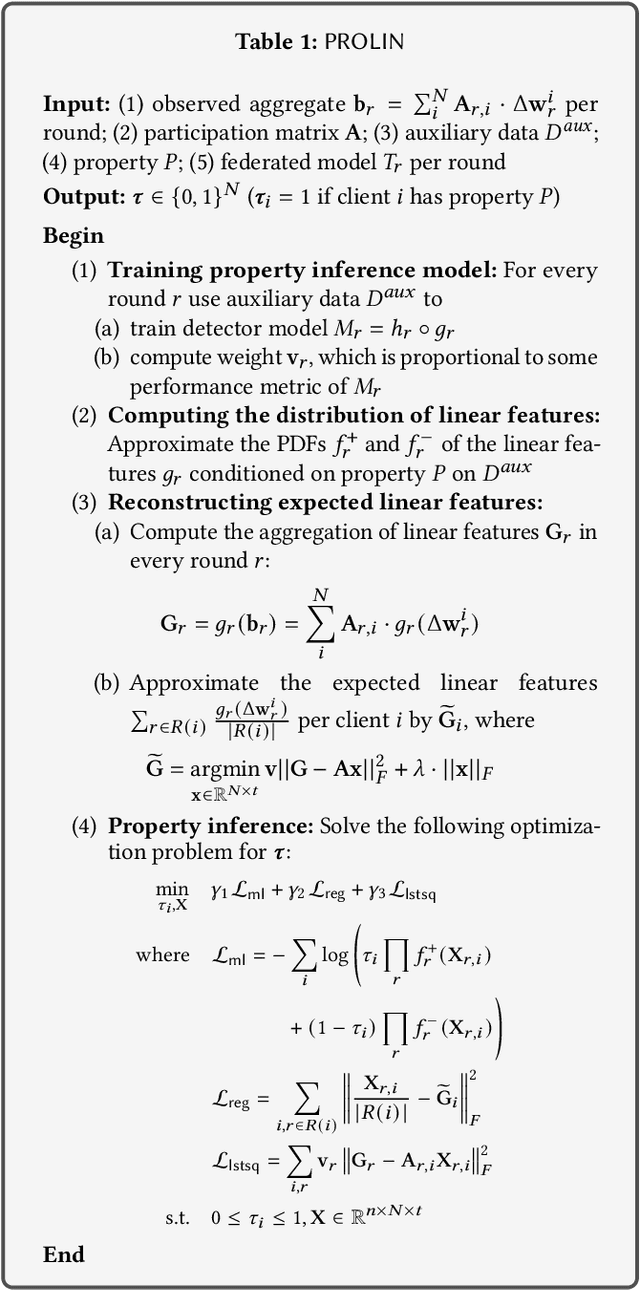

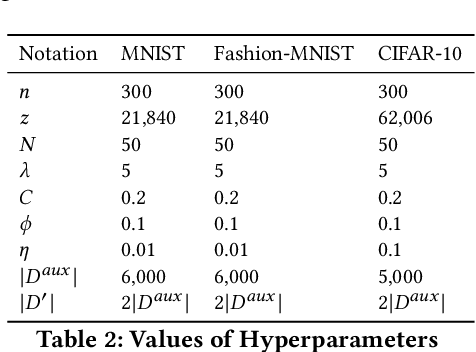
Abstract:Federated learning has become a widely used paradigm for collaboratively training a common model among different participants with the help of a central server that coordinates the training. Although only the model parameters or other model updates are exchanged during the federated training instead of the participant's data, many attacks have shown that it is still possible to infer sensitive information such as membership, property, or outright reconstruction of participant data. Although differential privacy is considered an effective solution to protect against privacy attacks, it is also criticized for its negative effect on utility. Another possible defense is to use secure aggregation which allows the server to only access the aggregated update instead of each individual one, and it is often more appealing because it does not degrade model quality. However, combining only the aggregated updates, which are generated by a different composition of clients in every round, may still allow the inference of some client-specific information. In this paper, we show that simple linear models can effectively capture client-specific properties only from the aggregated model updates due to the linearity of aggregation. We formulate an optimization problem across different rounds in order to infer a tested property of every client from the output of the linear models, for example, whether they have a specific sample in their training data (membership inference) or whether they misbehave and attempt to degrade the performance of the common model by poisoning attacks. Our reconstruction technique is completely passive and undetectable. We demonstrate the efficacy of our approach on several scenarios which shows that secure aggregation provides very limited privacy guarantees in practice. The source code will be released upon publication.
Industry-Scale Orchestrated Federated Learning for Drug Discovery
Oct 17, 2022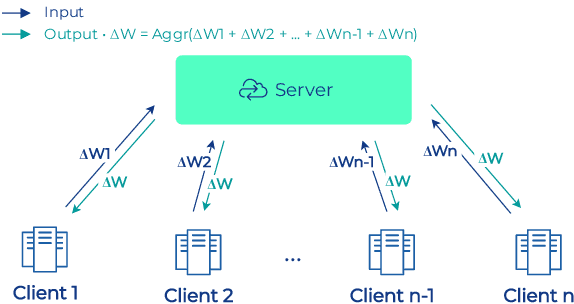
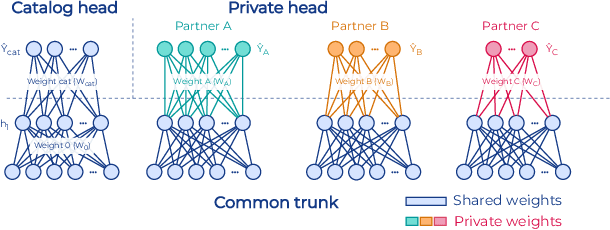
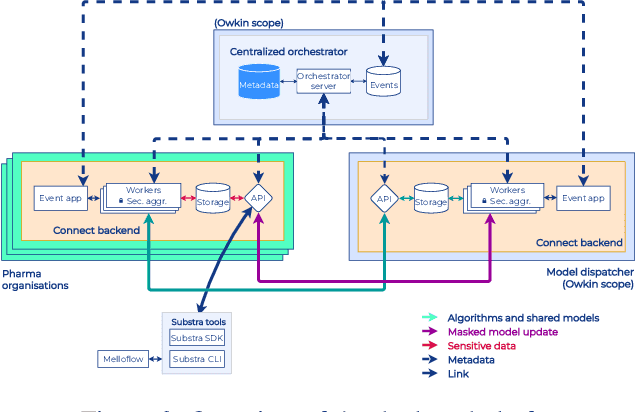

Abstract:To apply federated learning to drug discovery we developed a novel platform in the context of European Innovative Medicines Initiative (IMI) project MELLODDY (grant n{\deg}831472), which was comprised of 10 pharmaceutical companies, academic research labs, large industrial companies and startups. To the best of our knowledge, The MELLODDY platform was the first industry-scale platform to enable the creation of a global federated model for drug discovery without sharing the confidential data sets of the individual partners. The federated model was trained on the platform by aggregating the gradients of all contributing partners in a cryptographic, secure way following each training iteration. The platform was deployed on an Amazon Web Services (AWS) multi-account architecture running Kubernetes clusters in private subnets. Organisationally, the roles of the different partners were codified as different rights and permissions on the platform and administrated in a decentralized way. The MELLODDY platform generated new scientific discoveries which are described in a companion paper.
Constrained Differentially Private Federated Learning for Low-bandwidth Devices
Feb 27, 2021
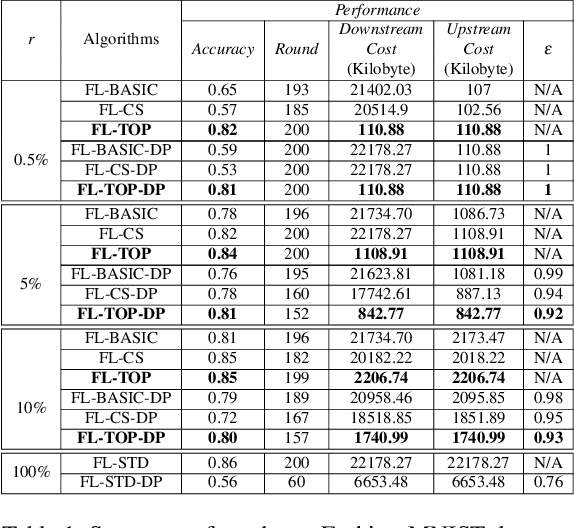
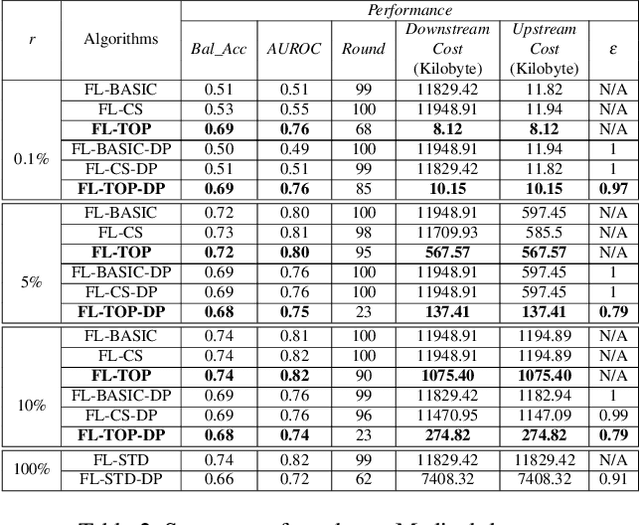

Abstract:Federated learning becomes a prominent approach when different entities want to learn collaboratively a common model without sharing their training data. However, Federated learning has two main drawbacks. First, it is quite bandwidth inefficient as it involves a lot of message exchanges between the aggregating server and the participating entities. This bandwidth and corresponding processing costs could be prohibitive if the participating entities are, for example, mobile devices. Furthermore, although federated learning improves privacy by not sharing data, recent attacks have shown that it still leaks information about the training data. This paper presents a novel privacy-preserving federated learning scheme. The proposed scheme provides theoretical privacy guarantees, as it is based on Differential Privacy. Furthermore, it optimizes the model accuracy by constraining the model learning phase on few selected weights. Finally, as shown experimentally, it reduces the upstream and downstream bandwidth by up to 99.9% compared to standard federated learning, making it practical for mobile systems.
Compression Boosts Differentially Private Federated Learning
Nov 10, 2020

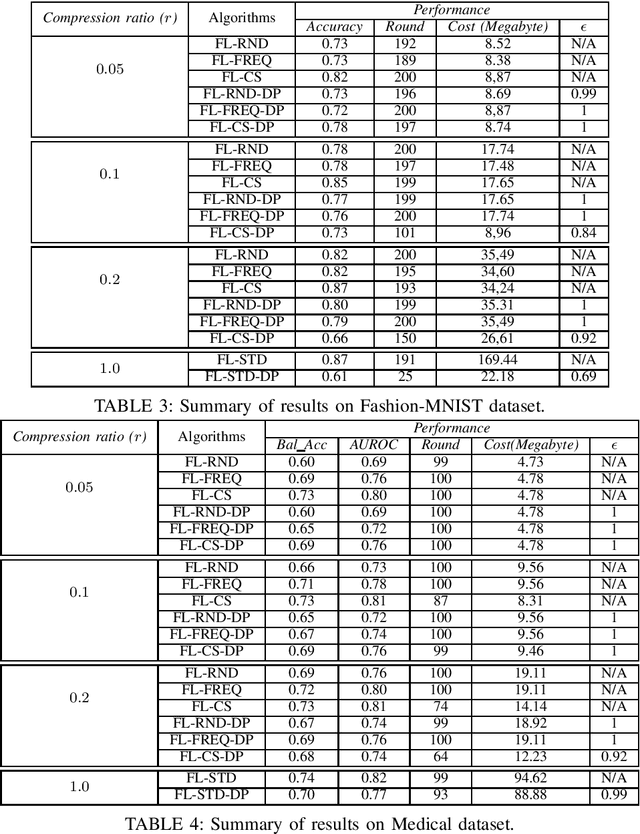

Abstract:Federated Learning allows distributed entities to train a common model collaboratively without sharing their own data. Although it prevents data collection and aggregation by exchanging only parameter updates, it remains vulnerable to various inference and reconstruction attacks where a malicious entity can learn private information about the participants' training data from the captured gradients. Differential Privacy is used to obtain theoretically sound privacy guarantees against such inference attacks by noising the exchanged update vectors. However, the added noise is proportional to the model size which can be very large with modern neural networks. This can result in poor model quality. In this paper, compressive sensing is used to reduce the model size and hence increase model quality without sacrificing privacy. We show experimentally, using 2 datasets, that our privacy-preserving proposal can reduce the communication costs by up to 95% with only a negligible performance penalty compared to traditional non-private federated learning schemes.
Federated Learning in Adversarial Settings
Oct 15, 2020
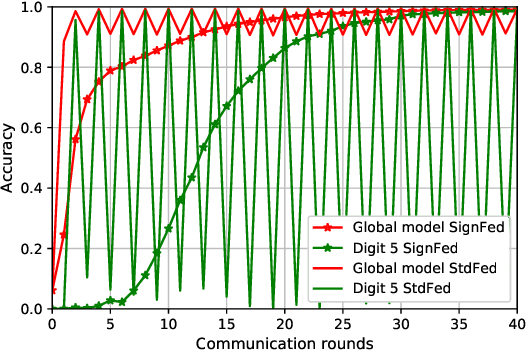

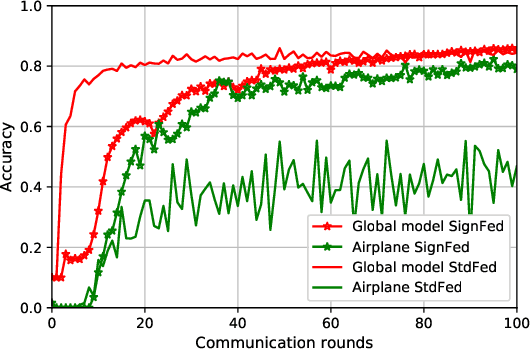
Abstract:Federated Learning enables entities to collaboratively learn a shared prediction model while keeping their training data locally. It prevents data collection and aggregation and, therefore, mitigates the associated privacy risks. However, it still remains vulnerable to various security attacks where malicious participants aim at degrading the generated model, inserting backdoors, or inferring other participants' training data. This paper presents a new federated learning scheme that provides different trade-offs between robustness, privacy, bandwidth efficiency, and model accuracy. Our scheme uses biased quantization of model updates and hence is bandwidth efficient. It is also robust against state-of-the-art backdoor as well as model degradation attacks even when a large proportion of the participant nodes are malicious. We propose a practical differentially private extension of this scheme which protects the whole dataset of participating entities. We show that this extension performs as efficiently as the non-private but robust scheme, even with stringent privacy requirements but are less robust against model degradation and backdoor attacks. This suggests a possible fundamental trade-off between Differential Privacy and robustness.
 Add to Chrome
Add to Chrome Add to Firefox
Add to Firefox Add to Edge
Add to Edge